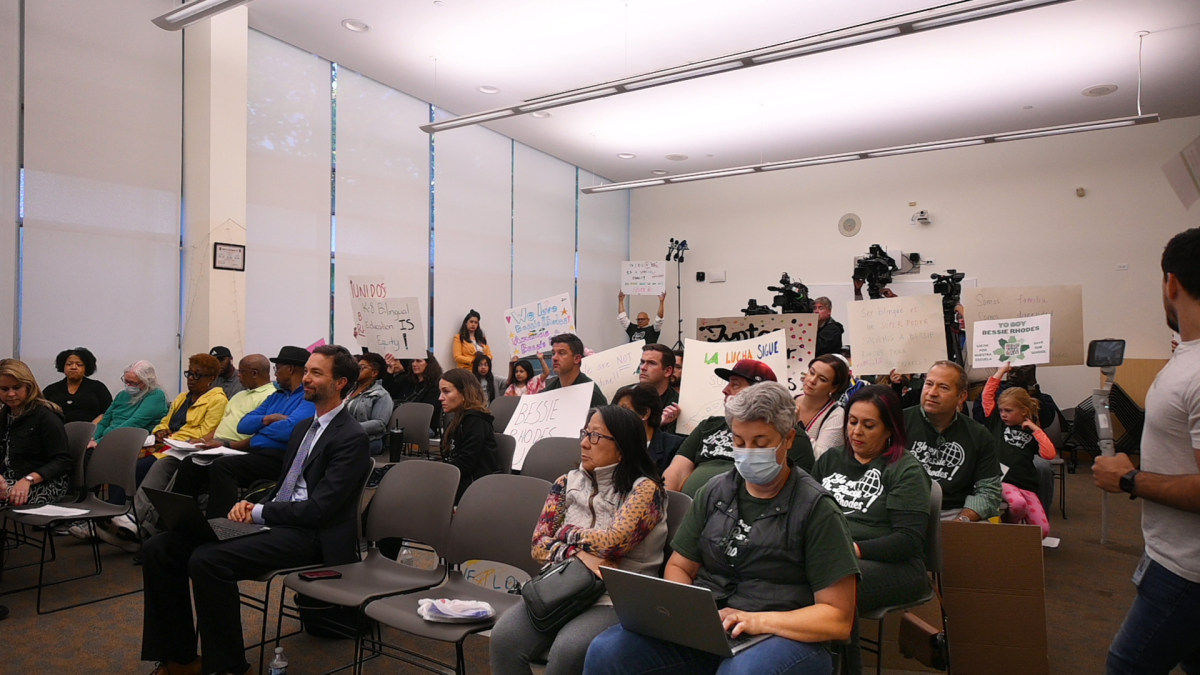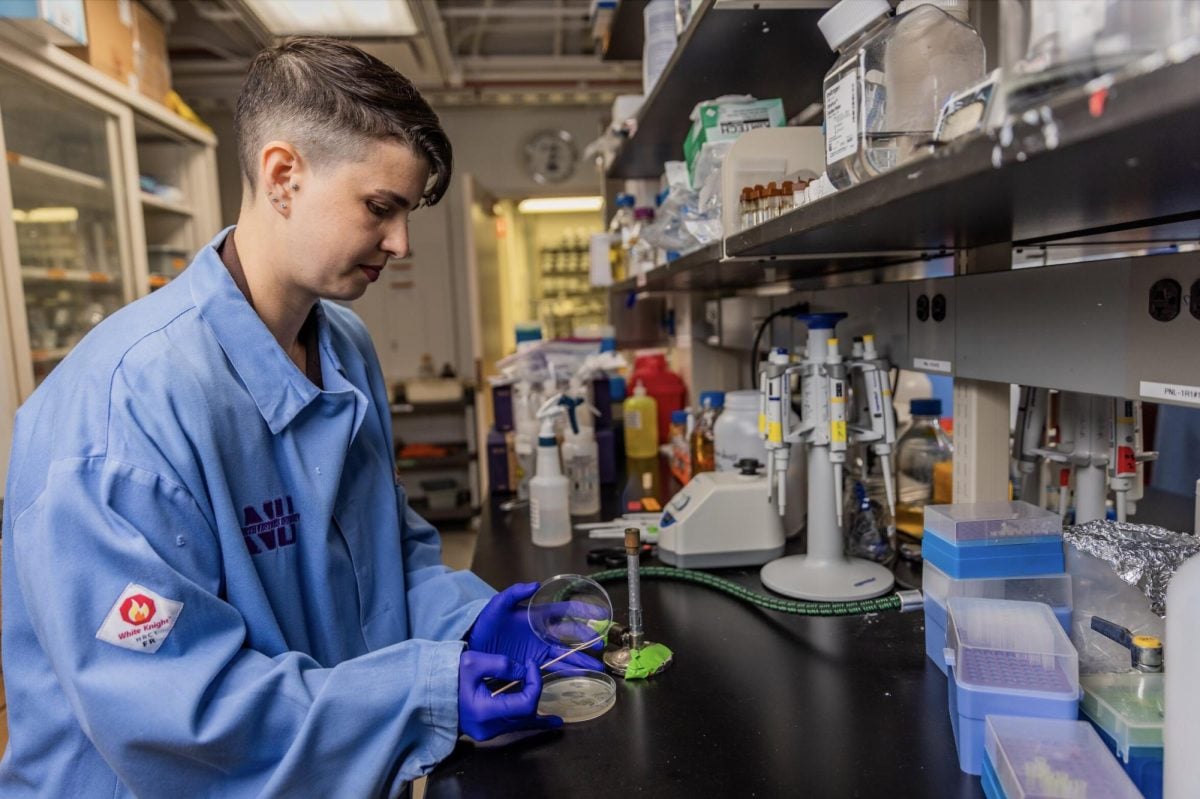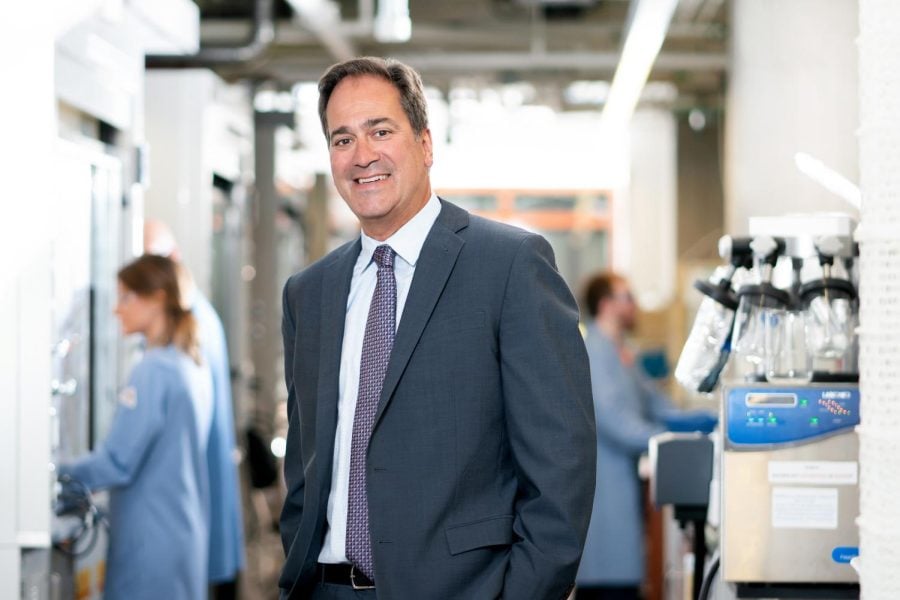When McCormick Prof. Erica Hartmann learned about the use of microbes to clean up toxic chemicals, she was instantly enamored.
She then founded the Hartmann Lab, which explores the intersection of microbiology and environmental engineering.
Hartmann researched the causes of outdoor pollution and found that outdoor pollution issues often come from indoor chemicals. She was particularly interested in antimicrobial chemicals.
“These are chemicals we use extensively in cleaning products, but we also embed them in building materials,” Hartmann said. “They wind up washing down the drain and in wastewater treatment and then in streams and sediments.”
Civil and environmental engineering research associate Weitao Shuai, who works in the Hartmann Lab, focuses on wastewater treatment systems. Her work involves researching the interactions of microbes with micropollutants in greywater, which is any water used in a household.
Shuai said interactions with micropollutants could cause antimicrobial-resistant genes to become more prevalent in bacteria in wastewater. These genes could also be spread to pathogens, which is a health risk to people exposed to the bacteria, she said.
“People (who have) those treatment systems will use the treated (greywater) to irrigate their gardens,” Shuai said. “The water will be deposited into their garden and maybe also outer the soil microbiome.”
Hartmann said using antimicrobial chemicals is an inefficient way to manage microbial communities because it kills all microorganisms, not just the harmful ones. This can cause antimicrobial resistance.
Hartmann said some people instead opt for “phage therapy,” a method that kills harmful bacteria, such as using bacteriophage, which are viruses that infect bacteria in very specific ways.
“Instead of saying ‘Here’s my antimicrobial, it kills everything,’ you can say, ‘Here’s my antimicrobial, it kills the very specific problem bacteria that I’m worried about here and leaves everybody else okay,’” Hartmann said.
In January, researchers from the Hartmann Lab published an article about using modified bacteriophage to infect and kill Pseudomonas aeruginosa, a bacterium highly resistant to antibiotics and can cause pneumonia.
Hartmann said she hopes to expand this research to other harmful bacterium found in water sources to prevent infections from occurring.
“We’re looking at potentially using ‘phage’ to influence wastewater treatment to make (the process) more efficient and reduce the energy usage that is needed for it so we can recover more valuable products,” Hartmann said.
Fourth-year Ph.D. student in civil and environmental engineering Anahid Amani Moghadam works with quorum sensing in the lab, which is how bacteria communicate and become more aware of their environment. She said her research focuses on integrating quorum sensing into phage therapy.
Amani Moghadam said Hartmann creates a supportive atmosphere within her lab.
“She knows people have different capacities, different potentials, and she’s trying to expose us to different opportunities to select the thing that interests us the most,” Amani Moghadam said.
Email: [email protected]
Related Stories:
— How NU’s conservation lab battles the test of time to preserve historic archives
— Computational Journalism Lab combines technology, news distribution research













